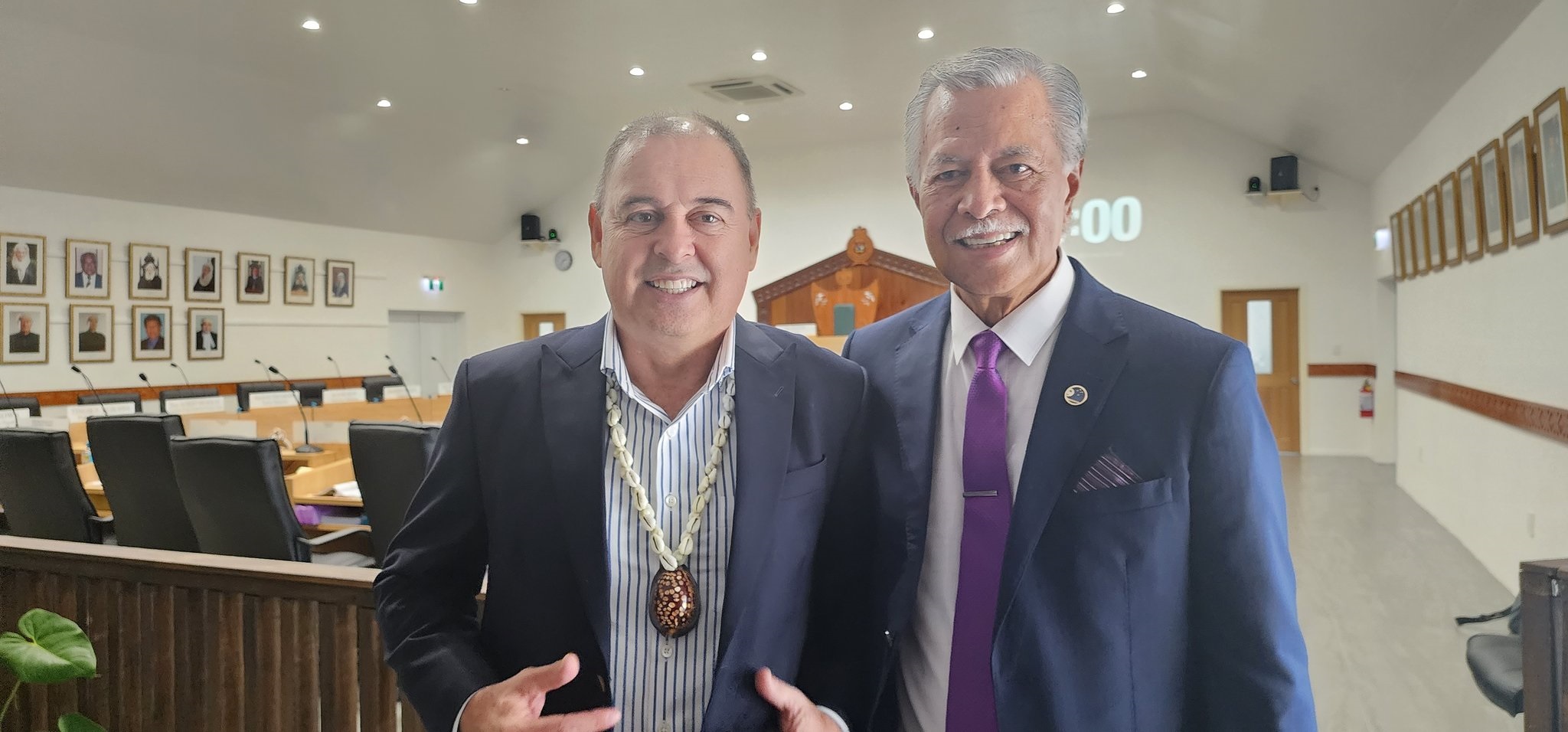A new national security policy launched by the Cook Islands in the margins of a regional meeting of Pacific security advisers has brought the security dimensions of climate and economic crises into the spotlight.
“Maintaining economic stability is critical for maintaining national security,” Cook Islands Prime Minister Mark Brown said at the launch, of his government’s national security policy on 26 June.
“Debt management solutions are needed for micro economies where the economies of scale can greatly disadvantage our efforts to meet debt servicing obligations. There has been no real effort to address our concerns in the Pacific. The responses have been a “business as usual” approach at a time when it was most definitely not business as usual.”
He told officials at the launch of his recent attendance as the Pacific Islands Forum Chair, at the G7 in Japan, where he had pointed out the key security priorities for the Pacific — economic security and climate security.
“Like many countries that have emerged from the COVID pandemic with decreased GDP, increased debt, and high inflation pressures, we are working diligently to regrow our economies. The closure of our borders meant we went from a high-income country to a no-income country overnight. We managed to support our industries to keep them alive during the closure of our borders, but this came a very high price,” he said.
The Cook Islands saw the total depletion of a NZD$70m economic stabilisation fund that took seven years to build. National debt doubled, to 45 percent of GDP.
“While we are working on re-growing our economies, we still face the ever present and growing impacts of climate change. It has taken us many years to have our voice heard that in respect of climate change, our priorities are financing to build resilience and adaptation. At the G7, I stated that we want more climate action on our priorities. Again, the sounds of the voices were very reassuring. We wait to see if that translates to action because to date the Paris commitments eight years later have not been met,” he said.
The inaugural launch offers a benchmark for others considering a similar undertaking, especially in the Pacific region, where leaders have echoed concerns on security issues. PM Brown recalled the Framework of Pacific Regionalism adopted by the Pacific Islands Forum Leaders in 2014 which provides elements for inter-governmental cooperation. By 2018, Forum Leaders endorsed the Boe Declaration on Regional Security, expanding the range of security priorities to include climate change, human security, including humanitarian assistance, environmental and resource security, transnational crime, and cybersecurity.
The Forum Leaders adopted the 2050 Strategy for the Blue Pacific Continent in 2022 recognising the central role that peace and security play in ensuring a safe, secure, and prosperous region.
“As both Prime Minister and Chair of the Pacific Island Leaders Forum the delivery of our national and regional aspirations and action plans cannot be divorced from the realities of international political and social dynamics that are constantly at play. We are (also) well aware of the great geopolitical interest in our region, and we know why there is great interest,” said PM Brown.
“It remains incumbent on us to ensure that our Pacific voice is clearly heard amongst all the various global tensions, and also in spite of the global failures to emphasise our own Pacific priorities of decarbonising our planet, demilitarising global hotspots, and upholding international obligations to social and environmental justice,” PM Brown stated.
In earlier remarks at the launch, Pacific Islands Forum Secretary General Henry Puna commended the Cook Islands Prime Minister on the inaugural policy and noted the Pacific region faces a unique set of challenges when it comes to security.
At their 51st Forum Leaders retreat in July 2022, Pacific Islands Forum Leaders endorsed the 2050 Strategy for the Blue Pacific Continent, which notes traditional and emerging threats to the Pacific.
SG Puna noted how, “in today’s interconnected world, security challenges transcend geographical boundaries. They demand regional cooperation, collaboration, and collective action…the Cook Islands’ National Security Strategy aligns perfectly with our vision of a secure, stable, and resilient Pacific region.”
The Cook Islands National Security Policy 2023-2026 presents eight national security pillars – machinery of government, national systems, economy, human security, environment, political stability and good governance, transnational organised crime, and cyber-crime.
SOURCE: PIFS/PACNEWS














